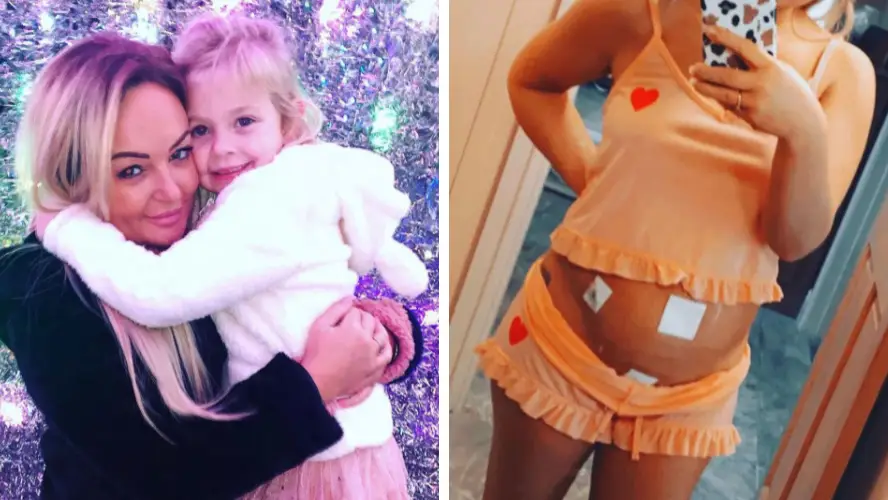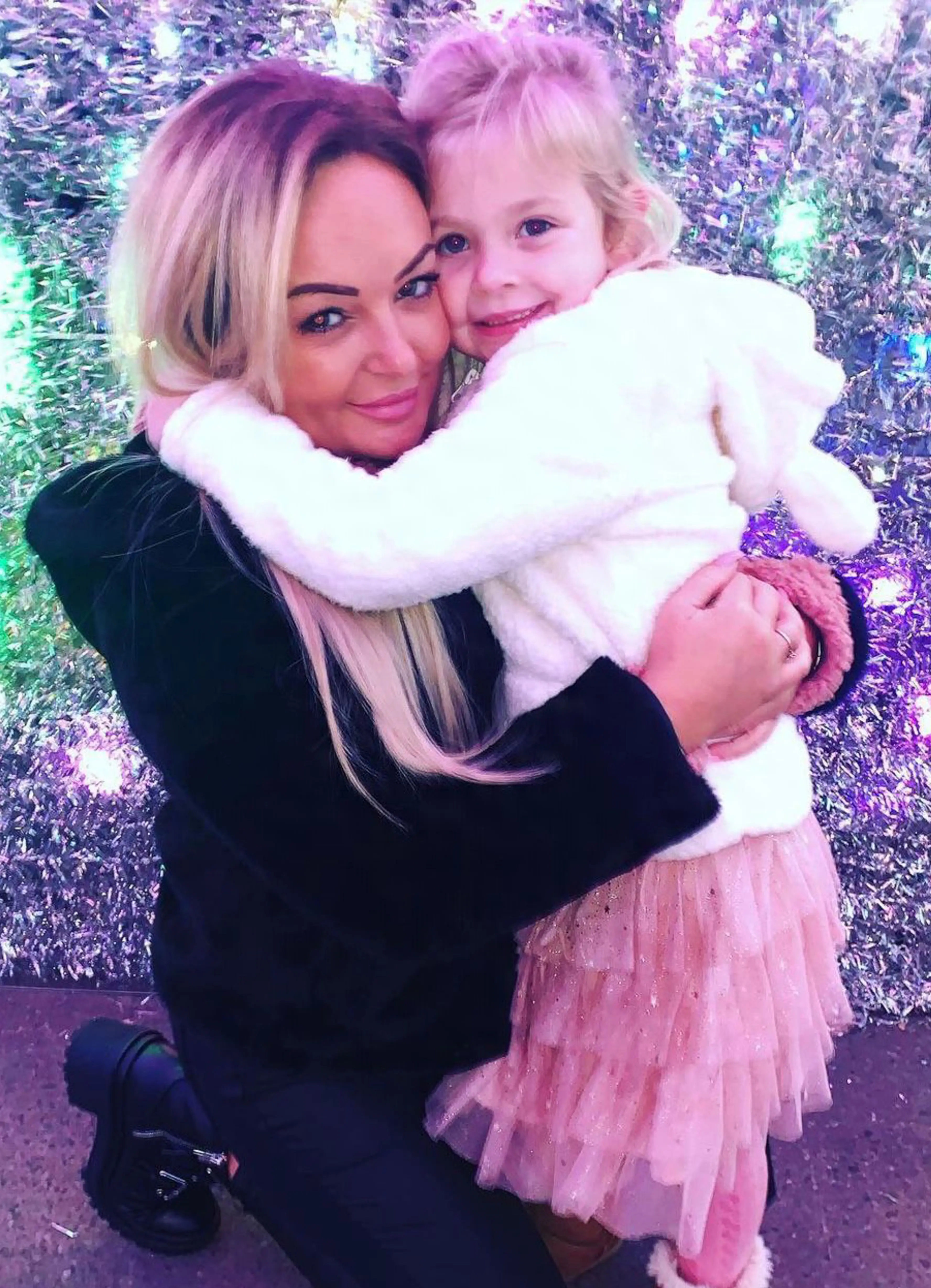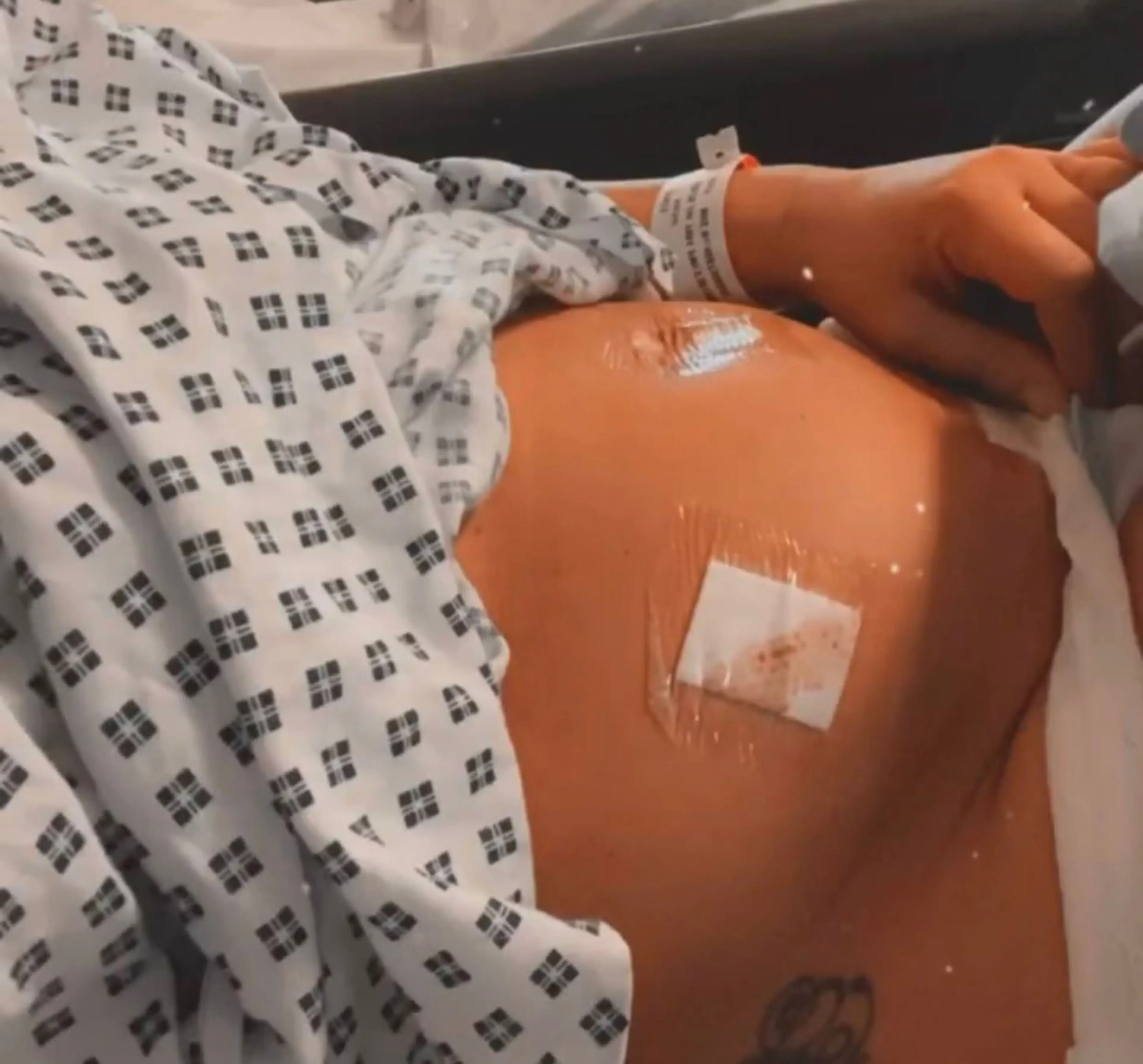
A woman has welcomed a miracle baby despite being diagnosed with endometriosis and undergoing early menopause.
Just before she turned 30, Rachel Sykes fell pregnant with her daughter Sophia despite being on hormonal contraception and enduring three induced menopauses, when she was told it was unlikely she’d ever be able to conceive naturally.
The 38-year-old said: "Miraculously, I accidentally and naturally fell pregnant when I was 29. I wasn't trying and I was even taking the pill. I couldn’t believe it."
The Dorset-based semi-permanent makeup artist explained how she was in agonising pain since she started her period at age 12.
Advert

Rachel said: "I was officially diagnosed with endometriosis when I was 17. The doctors told me there was no cure, we'd just have to manage the pain.
"I tried everything from the pill, the coil and the implant, but nothing helped. A hysterectomy was even mentioned when I was 18 to try to help with the pain, but I refused as I was still just a kid then.”
By the time she reached her twenties, she had already encountered three separate induced menopauses as a side-effect of her new treatment.
"However, I was told I probably wouldn't be able to have babies, and I was devastated,” she admitted.

But even after defying all odds and falling pregnant with her daughter, Rachel’s endometriosis continued to plague her body - causing her to bleed during her first ten weeks of pregnancy.
"My pregnancy made my endometriosis worse. Before I had Sophia, I'd already undergone 14 operations to try to laser the endometriosis away,” Rachel explained.
She went into premature labour at 34 weeks and thankfully gave birth to her daughter safely, before opting for a hysterectomy to finally rid her of the constant pain.
Though, this does mean that Rachel is now unable to have any more children without looking into other options like surrogacy.

“I didn't consider the fact I wouldn't be able to have any more kids, the fact I managed to have Sophia was amazing!
"I've adapted to it now, but it can be emotional sometimes especially as it feels like there are constant baby showers, but I have to be happy for my friends."
She still worries about whether her child will one day be diagnosed with the same condition.
"When I found out I was having a daughter, I was terrified of passing this on to her. I couldn't imagine her having to go through what I have.
"There isn't any history of it in my family, yet I've had a hysterectomy in my thirties and twenty years of pain.”

Rachel’s worries aren’t unsolicited, as NHS England states that genetics can play a part in the cause.
The organisation states: “The condition tends to run in families and affects people of certain ethnic groups more than others.”
However, there are many different routes of treatment to manage the condition including pain medication, contraceptives, surgery and complementary therapies.
If you have been affected by the contents of this article, please find more information and support via Endometriosis UK on their website, or call 0808 808 2227
